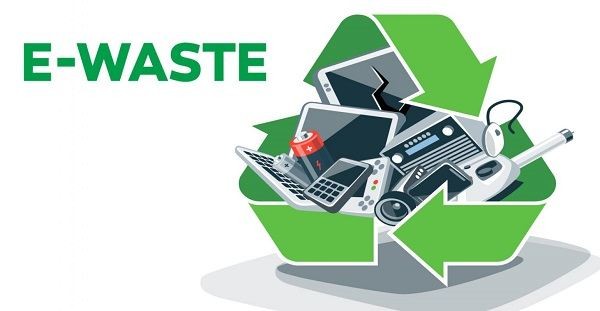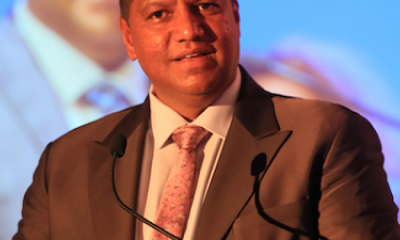Business
Transforming E-Waste into Sustainable Tech Solutions: A Vision for a Circular Future

As the digital revolution continues to shape our world, the challenge of managing electronic waste (e-waste) has become a growing concern. While technology brings incredible advancements, it also creates an environmental burden. With e-waste volumes growing faster than recycling rates, businesses and individuals must embrace sustainable solutions to minimize the environmental impact of electronic devices.
In South Africa, e-waste is the fastest-growing waste stream, with only a small percentage of it being recycled. At Dell Technologies, we believe in an end-to-end approach to sustainability, focusing on smarter product design, embracing circularity, and leveraging technologies like AI to create a more sustainable future. Here’s how we can tackle this challenge and create a greener tomorrow.
Smarter Product Design: Paving the Way for Circularity
One of the most significant opportunities to reduce e-waste starts with product design. When products are designed with circularity in mind, we can ensure that materials and components are reused, refurbished, or recycled at the end of their life cycle. By focusing on durability, modularity, and easier disassembly, we can reduce waste and improve the efficiency of the recycling process.
Designing for circularity means making it easier to recover recyclable materials like aluminium, plastic, and copper, which can be reintroduced into the supply chain. This not only reduces the demand for virgin materials but also lowers environmental impacts associated with the extraction of raw resources. For example, at Dell, we use recycled and renewable materials in our products, including bioplastics derived from the production of paper, and recycled cobalt in AI PCs. This focus on sustainable materials helps us keep products in circulation longer, reducing waste.
Designing for Circularity: Reducing Dependence on Finite Resources
The technology industry’s heavy reliance on finite raw materials like lithium and cobalt presents a significant environmental challenge. Mining these materials involves high energy consumption and environmental damage, making the need for sustainable materials even more urgent. At Dell, we focus on designing products that extend the lifecycle of these materials. We use recycled steel, aluminium, and plastic to ensure fewer resources are extracted, and more materials are recovered for reuse.
Additionally, we explore alternatives such as low-emissions aluminium and recycled cobalt to help lower our products’ environmental impact, while still meeting the high-performance needs of modern technology. By designing for circularity, we are helping to reduce waste and create a more sustainable future for the tech industry.
Harnessing AI for Sustainability: A Tool for Change
Artificial Intelligence (AI) has the potential to revolutionize the way businesses approach sustainability. By analyzing large amounts of data, AI can help identify inefficiencies in supply chains, manufacturing, and product life cycles. At Dell, we are using AI to enhance our sustainable design practices, track emissions, and optimize packaging to minimize environmental footprints.
However, it’s important that the infrastructure supporting AI is also energy-efficient and sustainable. Using low-power processors and energy-efficient hardware can reduce the carbon footprint of AI technologies, while also minimizing the e-waste generated by outdated infrastructure. We prioritize modular AI hardware to extend the lifecycle of these systems, helping to reduce waste as we build more efficient models.
An End-to-End Approach: Sustainability at Every Level
Sustainability should be integrated into every aspect of a business—from design and manufacturing to supply chains and customer engagement. This end-to-end approach is key to driving lasting change within the tech industry and beyond. By collaborating with suppliers and partners, we can innovate new materials, develop energy solutions, and navigate changing regulations.
This approach ensures that every step of the process is aligned with sustainability goals, creating a more sustainable ecosystem across the board. As businesses face the increasing pressure to reduce their environmental impact, embracing circular economy principles is not just a responsibility—it’s an opportunity to create lasting change.
A Greener Digital Future
The digital revolution has reshaped our world, but it’s essential that we begin to rethink how we build and dispose of our technologies. The escalating issue of e-waste calls for a radical shift toward circularity and resource efficiency. By adopting smarter product design, embracing sustainability at every level, and leveraging AI, we can transform e-waste from a growing problem into an opportunity for a greener future.
At Dell, we are committed to shaping a digital future that grows in harmony with the environment, creating a balance between progress and sustainability. It’s time for businesses to take responsibility and reimagine technology in a way that contributes to a sustainable ecosystem for generations to come.
Follow Joburg ETC on Facebook, Twitter , TikTok and Instagram
For more News in Johannesburg, visit joburgetc.com



















